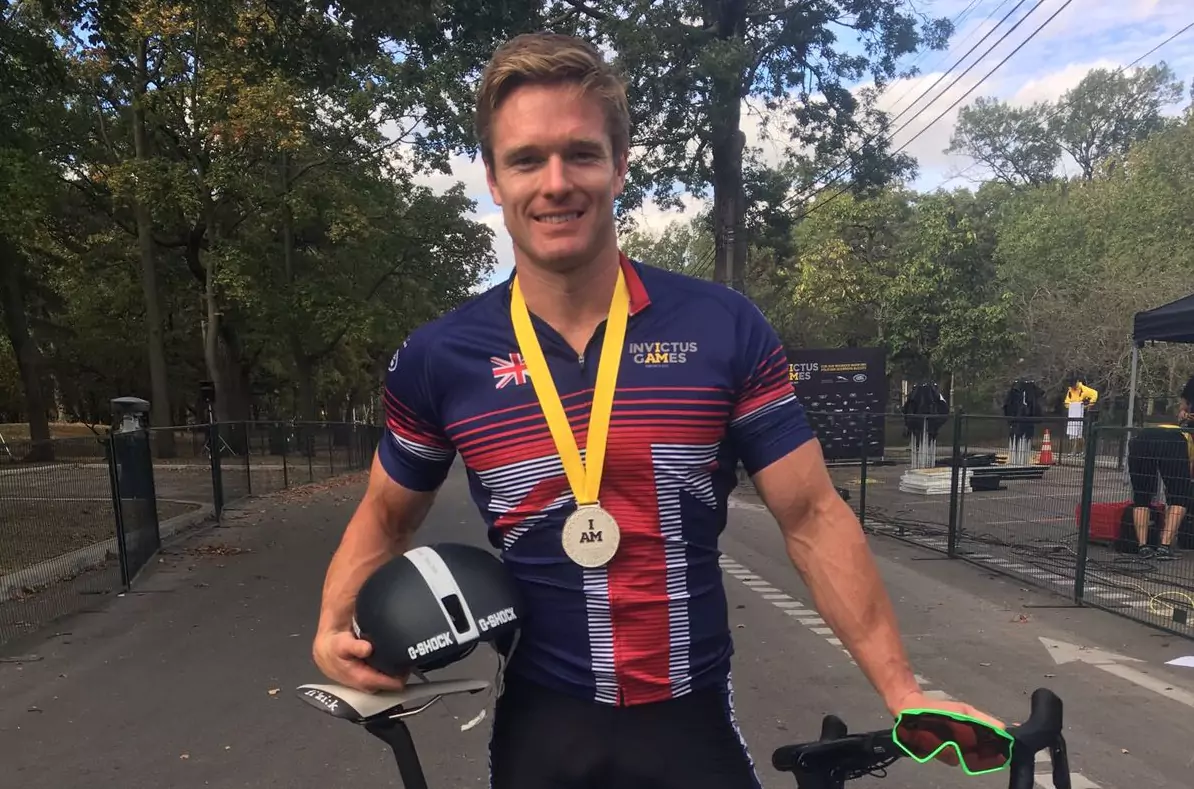Nathan Jones’ life changed forever when the military aircraft he was piloting went into a nosedive with 190 people on board. What happened next took courage and strength, but it was nothing compared to the journey that awaited him. This is the story behind Nathan Jones and Peak State, the mental wellness movement backed by Prince Harry.
Physical and mental performance were everything to Nathan Jones. After completing a university degree in sports psychology and science, the British national played professional rugby and served over 17 years in the military as a pilot, flying UK operational squadrons in Iraq, Afghanistan, Syria and Libya.
But in 2014, Nathan suffered a devastating injury, putting his physical and mental strength to their biggest test yet.
Monaco Life: Can you tell us about the moment that changed your life?
Nathan Jones: I was flying a transport plane called a Voyager; it’s a military-adapted Airbus A330 that I’m sure you’ve travelled on for holidays many times. We were flying troops from RAF Brize Norton, which is in the Cotswolds in the middle of the UK, out to Camp Bastion, a former British Army airbase in Helmand province, Afghanistan. It was a routine flight with a mixture of military passengers, aid workers, press and UN Commonwealth troops.
We were flying at night so that we were not a visible target. At around the halfway point – flying over the Black Sea with Turkey to my right and Georgia in front – a friend of mine came in to the cockpit to say hello. I suggested we go have a cup of tea in the front galley, so I took my break, did my checks and handed over control of the plane to the captain. I was the co-pilot at the time.
We went into the kitchen at the front of the plane when, all of a sudden, everyone who wasn’t strapped in hit the roof. The plane was in a dive and heading towards the sea. I had to crawl along the roof, in through the cockpit door, which was thankfully open because it was a military flight, and I went from a brightly lit cabin to a pitch-black cockpit with flashing lights. Everything that was not strapped in was stuck on the roof, and I was just staring at a dark sea coming quickly towards us. My feet were on the roof as we regained control and I pulled the plane out of the dive. Then, my body went straight into the footwell of the seat.
The plane flew in on a mayday to an American Air Force Base on the Turkish-Syrian border. I didn’t really know what damage my body had suffered at first. I knew I’d split my head open as I’d left a smear of blood along the roof from my journey there to the controls. But later on, I found out that I’d broken the sacroiliac and lumbar part of my back.
There were 198 people onboard, so it would have been a really bad day at work if we’d gone into the sea. But thankfully we didn’t.
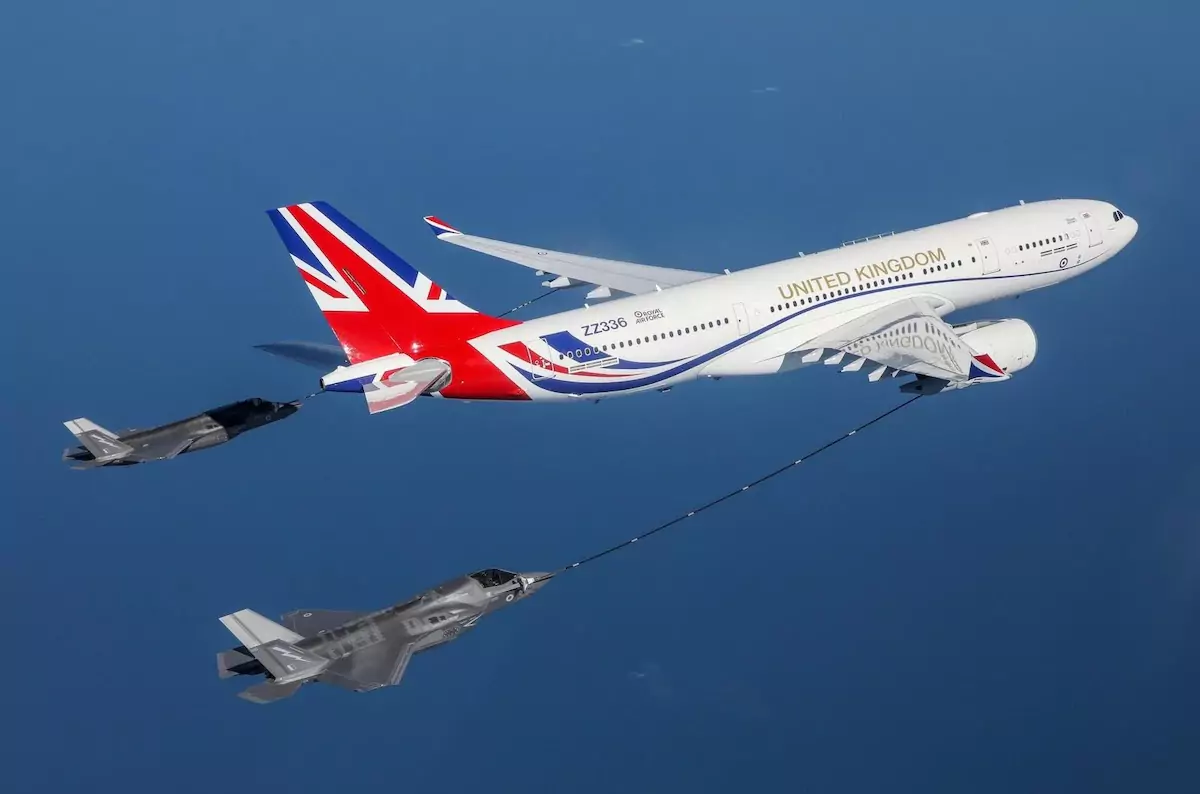
What caused the plane to go into a nosedive?
The other pilot got something jammed in the controls – a camera – without him realising, and when he moved his seat forwards it knocked the stick in full deflection forward and we went into a dive. We didn’t know what was going on, we were stuck in a dive and going pretty quickly at the same time. So yeah, there were a lot of scared people on board, including me.
But the moral of the of the story is, I was in a physically and mentally fit place beforehand. It’s amazing how you can go from hero to zero very quickly. It’s a long road back from a traumatic event: there’s the physical recovery that you’re going through, but really the most important and toughest road is the mental battle.
What kind of mental support were you receiving from the military?
The military has very good rehab centres. I spent most of my time at a place called Hedley Court, just south of London. It had everything you could wish for: hydrotherapy pools, swimming pools with retractable floors, anti-gravity runners.. the physical side was completely covered.
The mental side of recovery was covered as well, but you’re a permanent resident there – in a room, fed and watered. It’s a long road to recovery, so it’s your job, it’s all day.
My clinician was the Team GB doctor for the Invictus Games, an international competition set up by Prince Harry in 2014 for wounded, injured and sick service men and women. I was finding the recovery a real grind, so I was encouraged to enter the games.
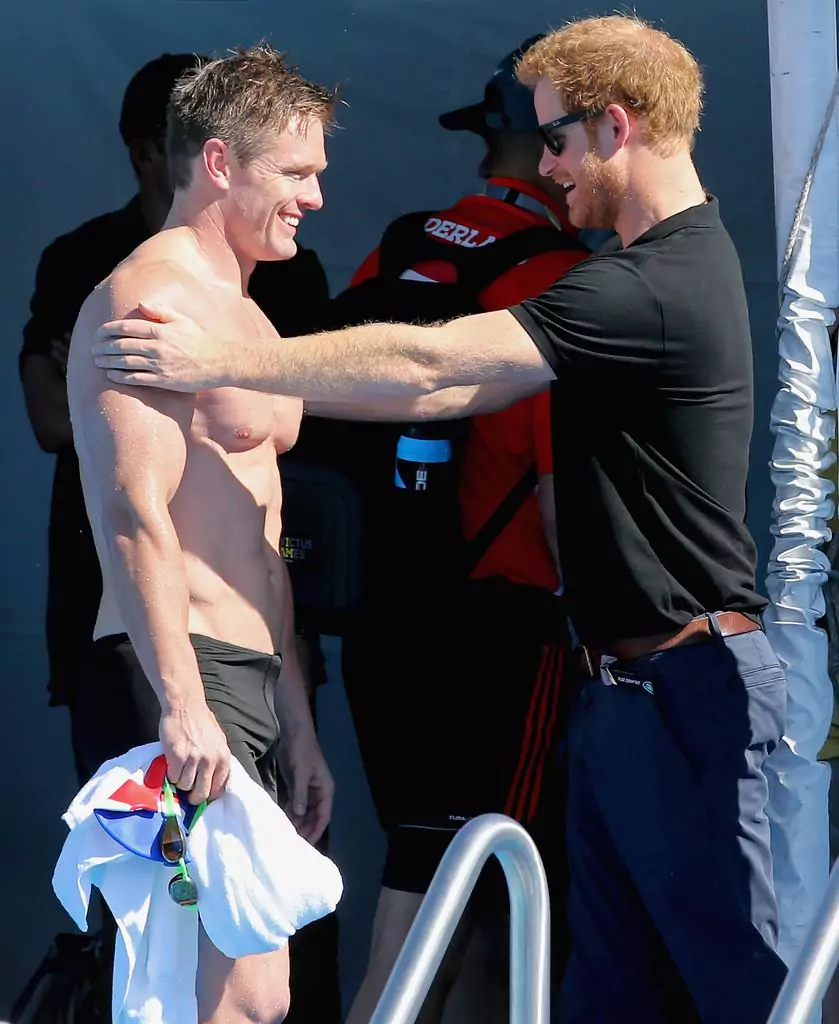
At the time, I was being told I was never going to run again, I was barely going to be able to walk, that I couldn’t do this or couldn’t do that. Every day was yet another thing that I was being told what I couldn’t do rather than what I could.
So, getting into a competitive sporting setup again was the opposite of that. You’re told all the things that you can do; you’re encouraged to strive to do things, and it’s a proactive way of looking at recovery, because doing sport is not just the physical, it’s all the different aspects of it.
The power of sport is certainly something that people underestimate, and I found it completely life changing. I’d say that everyone who has done the Invictus Games has had different but the same experiences.
So, I ended up competing in 2016 in Orlando and 2017 in Toronto. I was doing cycling and swimming – not sports that I was necessarily used to competing in – and then suddenly I was competing live on ESPN and it was being beamed all around the world. I had to make sure that I was performing at my best just for that, let alone the will to want to win and do my best. It was an amazing experience.
Once again, you pushed your body to the limits. What happened next?
The last thing that my surgeon said to me before I left for Orlando was: “Whatever you do, don’t fall off your bike!”. I was in the road race at the ESPN Wide World of Sports in Orlando, and the race was about 45 minutes long. We were doing laps of the circuit and on the last lap I was feeling good, bearing in mind I didn’t have a background in cycling racing, but I was feeling pretty fit and strong so I kicked it up, went around and got into first place, weaving through the last few corners. Keep in mind, I’d been around this track for 45 minutes by then and I was going fast.
I got the last corner wrong and smashed into the fence. I was well clear at that point, I could have just unclipped and cruised over the finish line. But instead, I hit the barrier and cartwheeled down the finishing straight. I smashed my bike to pieces – I don’t know how many pieces – my back wheel bounced down the road and I was lying in a heap. I went to hospital on a spinal board and, because I was in America, the medical system presented me with a $96,000 medical bill. Thankfully, the team insurance picked that up. But my surgeon watched it on TV and one of the first messages I received was, “You’ve done exactly what I told you not to!”.
I was fine though. It knocked me out, but I did manage to compete a few days later in the swimming pool. I was probably doing zigzags down the lane, but I did manage to do OK. And then Toronto went far better and I got some medals there.
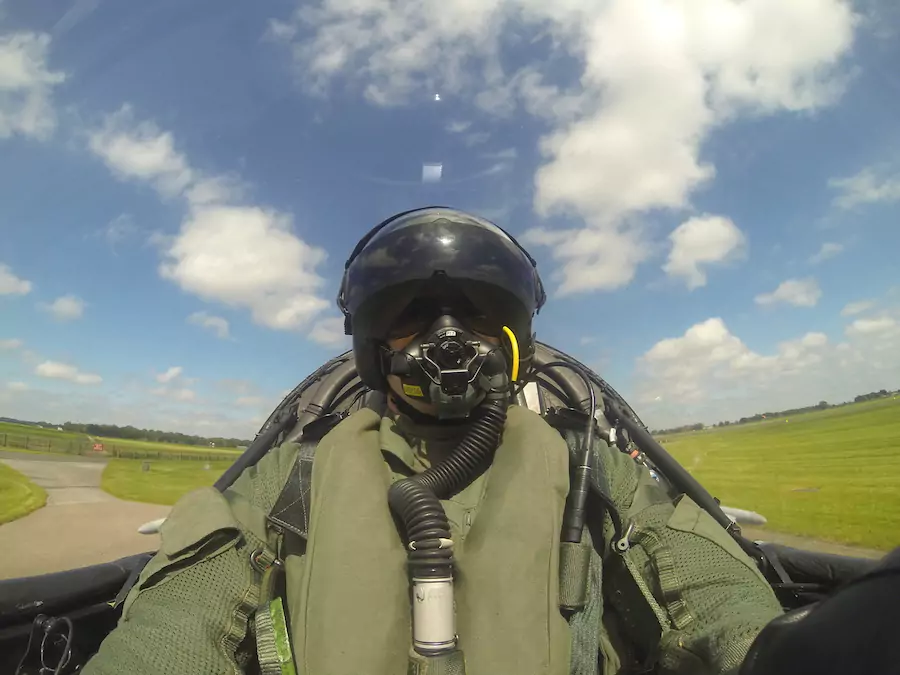
Where did the idea for Peak State come from then? You clearly had the physical fitness, but how did you manage to balance that with mental wellness?
David Wiseman, the co-founder, and I were both working at the Royal Foundation of the Duke and Duchess of Cambridge and Duke and Duchess of Sussex in London, and one of the programmes that we were looking at was the mental health provision for the UK Armed Forces. We found there was a lot of reparatory stuff: for people who were suffering from mental ill health, which is really what people think of in terms of mental health around the world. People instantly think mental ill health rather than mental health. But everyone has mental health, whether it is good or bad or indifferent, people are somewhere on that spectrum.
So, the military had a lot of reparatory stuff for people who were suffering from common mental disorders: anxiety, depression, stress, and post-traumatic stress from conflict or otherwise. But there was very little pre-emptive mental health work and treatment initiatives looking at the proactive approach to good mental health. Through the Royal Foundation in partnership with the MOD, a programme called Head Fit was created, which is still going now. It’s an annual training that all of the personnel in the UK go through, a scientific approach backed by psychology and science to look at healthy habits throughout the day and give people the tools and techniques in order to perform at their best.
We then decided that it was something that we wanted to do on a global level because we were very passionate about giving the general public the opportunity to perform at their best. Our mantra is to create a global community that understands the importance of mental fitness and the importance of attaining it.
When I say mental fitness, I am talking about your brain, your mental capacity, like a muscle. Your physical fitness and mental fitness should be discussed in the same context, looking at your mind like a muscle that you have to train.
It’s all about repetition, making things simple, easy and fun, something that you enjoy doing.
You can look at it like prehab rather than rehab. Why send someone into battle with no armour? With these tools and techniques that we’re trying to instil in people, if something bad happens to them, which it does to everyone at some point in their life, then they’ve got the foundations to mentally handle it. They can use these tools and techniques to get back to their peak state.
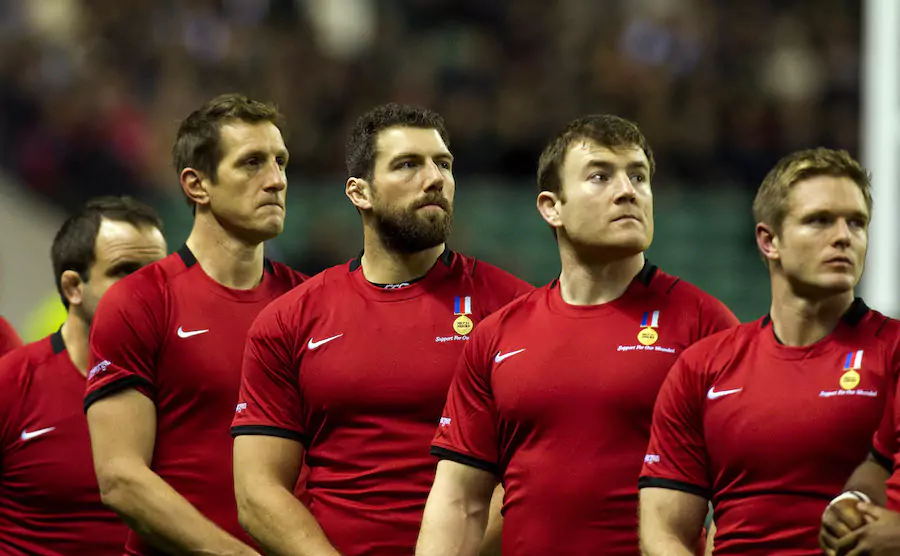
Prince Harry has been very vocal about mental health, and the struggles that he has personally had after the death of his mother Princess Diana, and the flow-on effect from that. How important is it to have the backing of such a large personality like Prince Harry?
Yes, Prince Harry has been a very passionate campaigner for mental health for over a decade now and he has achieved great things in this arena of mental health, from mental ill health and breaking down those boundaries and stigmas to the mental fitness arena of what we’re doing now. He has been championing Peak State right from the start, even the naming of it all the way through to the structure of what we’re doing.
Having someone that is so passionate about a topic like that is invaluable and he really does bring a passion and certainly a breadth of knowledge on the subject through lived and learned experiences.
But also, for obvious reasons, he is a well-respected member of the royal family.
He talks about mental health topics in his book, Spare, but having someone of his stature involved certainly breaks down barriers and opens up communities and conversations around the world for us, which is what we’re trying to do: to create a global community. So, yes, it’s fantastic having him involved.
Did you know Prince Harry in the military?
I’ve known Prince Harry for a long time, from serving with him in the UK military, through to the Invictus Games and working for him at the Royal Foundation, to now working together with Peak State. We go back a long way, as does David. He worked at the Royal Foundation for 10 years.
Can you go into more detail about Peak State and the kind of services that it provides?
We launched Peak State in Australia in 2020 with the prime minister at the time, Scott Morrison, in the aftermath of the summer bushfires. It was highlighting the amazing work of the first responders and how they’d performed at their best. We then partnered with the Greek Royal Family, Princess Tatiana of Greece, and created a platform for the Greek population. We’ve now launched a Peak State app, which is a toolkit that people can use on a daily basis. It can be scenario based, so if you are about to make a public speech or go into an important meeting or sporting event, you can dip into your pocket and quickly go through a breathwork exercise or visualisation and change the way that you’re perceiving things so that you’re firing on all cylinders.
We are also launching our online training programmes for both professionals and for schools.
Do you feel like there is finally a shift happening in society with regards to mental health, or is there still a long way to go?
There’s still a long way to go, but the conversation has changed, and over the last decade there has been a polar shift in the way that people perceive mental fitness and mental health thanks to a huge amount of work by charities and foundations around the world to de-stigmatise mental health and mental ill health.
What we’re trying to do is just change the dial again and look at it in a proactive way rather than a reactive way.
To find out more information on Peak State, visit: peakstate.org.
Join the Monaco Life community – sign up for the Monaco Life newsletter, and follow us on Threads, Facebook, Instagram, LinkedIn and Tik Tok.
